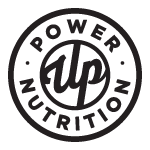Today I thought I’d switch things up by answering some of your questions.
One of the most valuable things you get from working with a nutrition coach is the weekly check-ins. This is when you get to go beyond merely following the generic nutrition template that you could download for free and really ensure that your nutrition plan is working for you. I get a bunch of questions asked weekly, and as you would expect there are some common threads. Let’s start with bread and alcohol.
I call this first one Bread and Booze.

One of the best thing about flexible dieting is that no food is off-limits. Knowing that you can eat anything can feel both incredibly freeing and pretty confusing. On one hand, we put most of our focus on quantity and macronutrients, but that doesn’t mean there isn’t also an overall concern for quality and micronutrients. Someone asked me recently, “How much bread should I be eating? I think I might be eating too much of it”. Now, I am French and I do love my bread too, so the question did make me smile. But it’s a fair one.
“How much bread is too much bread? And is it okay to eat it?”
I think too often we focus on vilifying certain foods because it’s easier. It’s easier to make bread the bad guy and put it on the “not allowed list” than it is to take a real look at our diet as a whole and pay attention to what we eat all day long.
Removing one food from your diet does not make it better if you don’t have a healthy diet to begin with.
Instead of thinking “what should I remove from my diet?”, I like to pose the question, “what is my diet lacking right now?”. In the context of a whole, healthy diet with sufficient protein, healthy fats and a wide range of colours and micronutrients, a slice of bread is not bad at all provided you don’t have a gluten intolerance. However, if all your allocated carbohydrates for the day are going to processed carbs and the only vegetable you had was the pickle on your burger, than yes, you are eating too much bread. Context matters.
The reality is that most adults fall way short of the 7-10 daily servings of fruits and vegetables as per the Canadian guidelines. I see this all the time and I believe that before asking ourselves whether or not we should eat less bread, we should ask ourselves how can we can add more fruits and vegetables to our diet.
Now if 7 to 10 servings seems like a lot to you, keep in mind that a serving is only 1/2 cup or 1 cup for leafy greens. All it takes is making small changes like adding a handful of spinach to your eggs (or smoothie where you won’t even taste it!), topping your oats with berries, turning your leftovers into a big salad for lunch, or snacking on cucumber slices with hummus instead of crackers. And my favourite, learning to prepare your veggies in a way that you enjoy eating them. For me, roasting and grilling brings the best flavours.
But what about bread? If you start by first getting in what you need, you then have discretion to use the rest of your carbs how you see fit. An active adult will most likely eat more carbohydrates than a smaller or less active individual, and therefore might have more room for whole grains, rice, bread and pasta in their diet. There comes a point for my more competitive athletes where eating mounds of broccoli just becomes counter productive, and ensuring that they eat things like bread, rice and pasta makes it more manageable for them to hit their targets without upsetting their GI.
All that being said, one of the most important things for your diet to be successful is that it has to be sustainable for you. If you absolutely love bread then it should be a part of your diet. Our focus is to learn to look at the quality of our diet as a whole. It’s never about one bad food or one good food, and eating food that makes us happy is also an important piece of the puzzle.
Okay, so I can have my avocado toast, but what about my Chardonnay?
How much alcohol should I be having if weight loss is my goal?
Alcohol consumption can be approached in a very similar manner. Again, you want to look at your lifestyle and diet as a whole before drawing any conclusions. What works for one person might not work for you and as such it’s a very personal question. Some people are more sensitive to alcohol than others. I am going to start by saying that for athletes, it is never a good idea for both performance and recovery, so if you have an important competition or race coming up it’s best to abstain. But what about for someone trying to lose weight? Well, we know for sure that the empty calories are not helpful. But can we still make it work?
You could make it work. You can track your alcohol and account for the calories and still be in a calorie deficit. Would it be optimal? Probably not, but maybe it would make it more sustainable for you and in turn doesn’t that actually make it optimal for you? That’s when we enter the grey area again.
Because doing the hardest thing for a short time works, but it is rarely sustainable. We need to find the sweet spot, where you make lifestyle choices that will allow you to see results that you can maintain without feeling overly restricted.
So yes, you can factor in the calories in your plan and have a drink or two. There are a few questions you should ask yourself first: “Are the calories I save for alcohol coming in the way of me getting all my important nutrients for the day? Am I managing my hunger and energy poorly to save my calories to have drinks?”.
You can see how it would be a problem if you are hungry and low energy all day just so you can save 30-40 grams of carbs for wine tonight. But if you feel good, you are eating your vegetables and you truly feel like the glass of wine with dinner is important to you, then it can work for you. Of course we know that alcohol and weight loss has to do with more than just calories. Even if it fits your macros, it might still affect your results. How alcohol affects us and our hormones can be unpredictable, but it will likely affect sleep quality, recovery, hormones and impair your judgement.
It is a bit more complex than simply budgeting the calories. Once you have alcohol in your system, everything stops: your body is no longer burning fat, building muscle, or recovering. All it can do now is digest and process the alcohol. We also know that after we drink, our judgment and inhibitions change and we are more likely to make poor decisions around food and ignore our diet. We are also more likely to not feel as great the next day, continuing to affect our eating decisions and so the cycle continues.
All that being said, I do think it’s important to look at the sustainability factor more closely. If drinking moderately and occasionally is a part of your life that you enjoy and is important to you, than I would caution against cutting it out entirely to lose weight. It won’t be long until you are hating your life, and guess what happens if you lose weight in ways you can’t maintain? You gain the weight back as soon as you return to your old habits. Which is a matter of time when you hate your life.
I think it is about incorporating things into in your life in a way that supports your goals. Also, it is equally as important to have goals that align with the lifestyle that you want. If your goal is to be lean and shredded, then drinking every night doesn’t realistically fit into this. Hell, if you want to get to single-digit body fat stage lean, than maybe alcohol has no place at all. But for most people with realistic goals, drinking in moderation is perfectly fine.
We all have what I call non-negotiables. Before entering any lifestyle choice, whether it’s trying flexible dieting or a new workout regimen, ask yourself, “What is really important to me to stay happy?”. Once you narrow it down, you need to make sure that this is factored into your choices.
Personally, alcohol is an easy one for me to leave out. I am quite sensitive to it, and not in a good way. I find I tolerate it better on holidays when stress is lower. But in general, it really messes with my sleep and has lasting effect on my recovery and training the next day. Since I don’t enjoy it that much, it’s easier for me to mostly go without. However, I feel really strongly about chocolate and sweets (again blaming that on being French!) and I wouldn’t last a week if my plan wasn’t flexible enough for me to include them in my diet.
You could say that chocolate is my non-negotiable. And I do allow myself to indulge almost daily with some portion control. If for you, a beer in your backyard with your spouse a few nights a week after work is your non-negotiable, than you can absolutely find a way to include it in your program and still reach your goals.
Does that make sense?
Hopefully it does. Nutrition is never black and white, although I realize for many it would make it a lot easier to navigate. My goal is to try and post some of my most commonly heard questions on here bi-weekly. However, if you have one question you would really like answered, feel free to send it directly to me.
Until then, eat the rainbow and talk to you soon!
Annie 🙂



